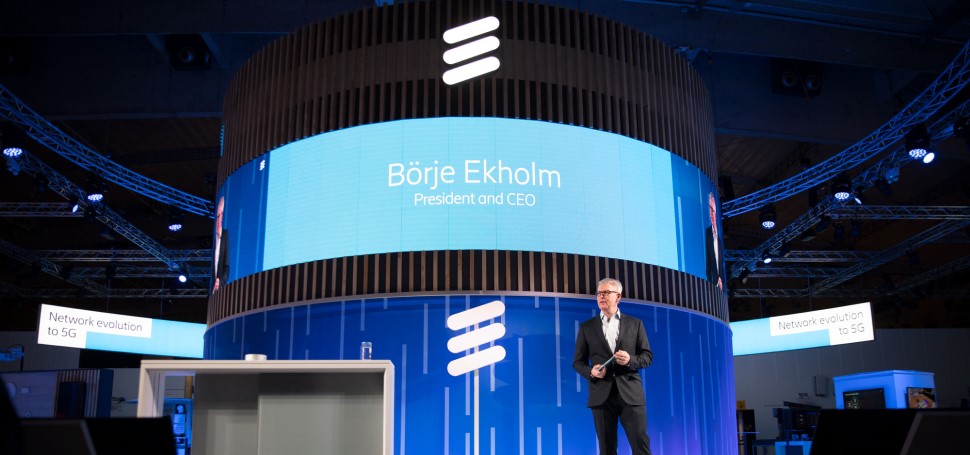Ericsson: Our customers are 5G leaders
Ericsson also makes major antenna acquisition

Ericsson says it will be the equipment vendor to switch on 5G “around the world in 2019”, claiming its customers be world leaders in the shift to next-generation networks.
Speaking at Mobile World Congress (MWC) in Barcelona, Ericsson CEO Borje Ekholm said the company had agreed commercial 5G deals with ten service providers and agreed 42 memorandum of understandings (MoU) to date.
The US, where rival Huawei is excluded, has been a particularly fruitful market for Ericsson, which has invested significant resources in its development and sales operations in the country in order to be closer and more responsive to customers.
- What is 5G? Everything you need to know
- Ericsson makes North American 5G investments
- One in seven connections will be 5G
Ericsson 5G
Ekholm said the capabilities of its equipment, including the Ericsson Radio System, meant it was ideally suited to serving communication service providers around the world. Ericsson says ERS has been ready for 5G New Radio (5G NR) since 2015 and that it had already shipped more than three million 5G-ready radios to customers.
“At Ericsson, we have the resources and supply chain for the fast rollout of 5G,” he said. “Our strategy is to work with leading customers in leading countries where spectrum is available. We are technology leaders.
“Our unique spectrum sharing is the most economic way for customers to deploy 5G using existing bands. This means spectrum will be optimally used on both 4G and 5G. It is one of the most smart ways of using one of the most valuable assets in mobile.
“With spectrum sharing, our customers have a real 5G frontrunner advantage.”
SIGN UP FOR E-MAIL NEWSLETTERS
Get up to speed with 5G, and discover the latest deals, news, and insight!
5G networks are currently live in the USA and South Korea, but the GSMA expects 16 more countries to become connected in 2019.
Ekholm suggested that North America and Asia were the leading regions at present because there was a greater need to cope with growing data demand. Meanwhile, China has been interested in industrial applications since the early stages of development.
“In Europe we have been slower but that has a lot to do with the regulatory environment,” he explained. “The spectrum situation is not resolved as half of the countries [in Europe] have not made it available.”
Kathrein acquisition
To strengthen its 5G capabilities, Ericsson is acquiring the antenna and filter business of German firm Kathrein. The company is already a supplier but bringing the antenna unit in-house will give Ericsson additional expertise to create antennas that can handle multiple frequencies and can be compressed into smaller form factors. As part of the deal, 4,000 Kathrein staff will move over to Ericsson.
Ericsson would be one of the main beneficiaries of any move to exclude Huawei from 5G rollout in Europe. When asked whether Ericsson would benefit from any move by operators to swap Huawei kit under the guise of a 5G upgrade, Ekholm said it was a “hypothetical question.”
“We must let the governments decide what to do here,” he explained. “But if we see uncertainty in our customers we’re preparing our supply chain to deliver products to our customers at fast pace”
- MWC (Mobile World Congress) is the world's largest showcase for the mobile industry, stuffed full of the newest phones, tablets, wearables and more. TechRadar is reporting live from Barcelona all week to bring you the very latest from the show floor. Head to our dedicated MWC 2019 hub to see all the new releases, along with TechRadar's world-class analysis and buying advice about your next phone.
Steve McCaskill is a former editor of Silicon UK, and is an experienced journalist. Over the last eight years Steve has written about technology, in particular, telecoms, mobile, sports tech, video games and media.

